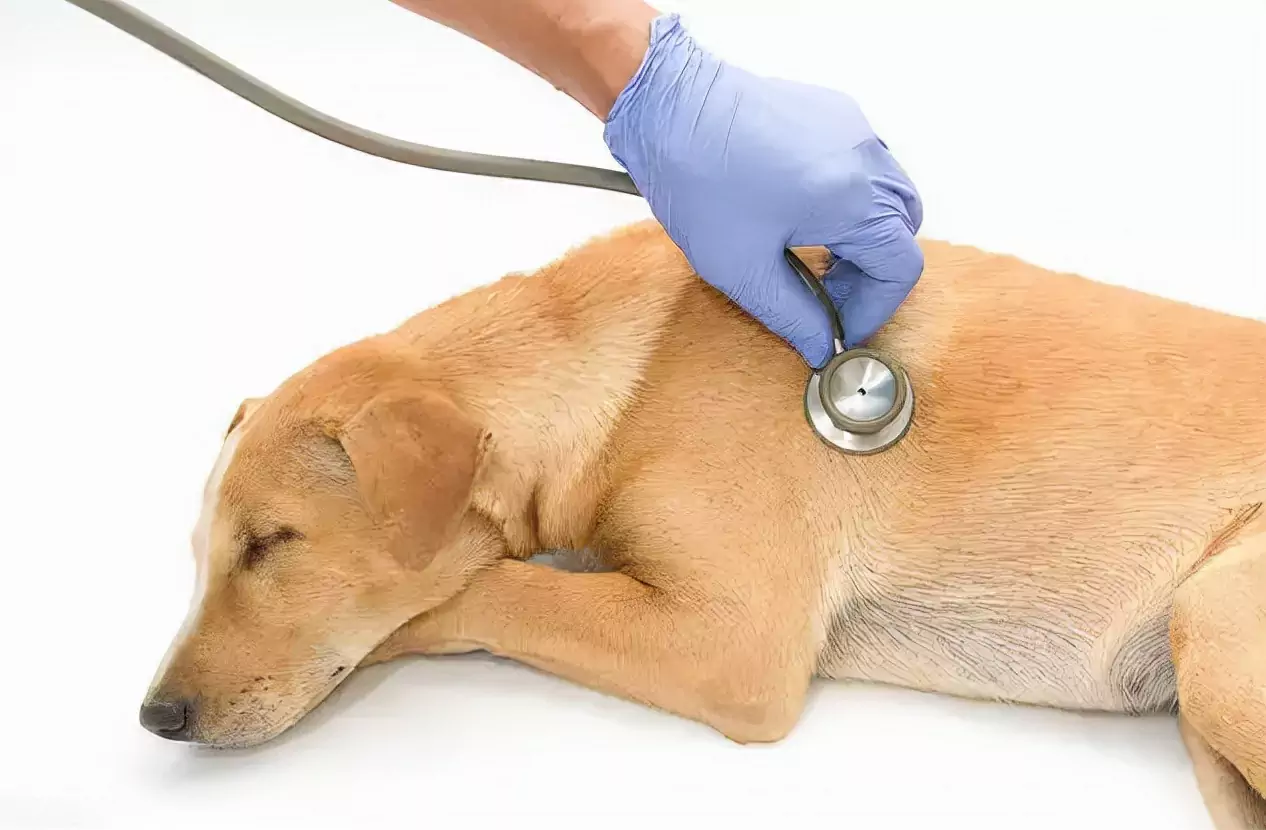Do dogs have allergies? Top 4 Common Allergens in Dogs
2022-07-01
Can dogs have allergies
Dogs can be allergic, and dog allergies are subdivided into acute and chronic allergies. Acute allergies usually occur as a result of oral or injectable medications or ingestion of certain sensitive proteins and usually appear immediately as a rash or itch on the face, extremities, or entire body. Chronic allergies usually manifest as red rashes, pimples, itching, and some are accompanied by chronic ear infections and vomiting.
1, generally speaking to the dog diarrhea or vomiting, will certainly be the first time to guess, is not their dog eat something wrong, or is frightened and so on, but in addition to these possibilities, in fact, allergies, is also the dog diarrhea or vomiting, so no matter what, if the dog has been persistent vomiting or diarrhea, or please immediately take to medical treatment.
2, if the dog's skin is found to be red and swollen, and has been scratching his body, it is possible to have atopic dermatitis, which is likely to be caused by pollen and dust mites, and this situation does not exclude food-induced allergic dermatitis.
3, if the dog has been running tears, it is possible that it is not sad in crying, but because of something allergic, and caused by tears.
4, if the dog has been sneezing, it may be a cold, it is possible that it is also
It may also be caused by an allergy to something. If it persists, it is advisable to see a doctor immediately.
5, if the dog snores at night with a very deep voice, and also continues to do so, it may be caused by nose allergies, this should immediately go to the hospital for examination and treatment.
If your dog has these symptoms, you should pay more attention to it, and if it persists, it is recommended to take it to the hospital as soon as possible.

Top 4 common allergens in dogs
When dogs have allergies, their reactions are usually stronger and more pronounced; dogs will start itching and scratching, and ear infections may persist. As an owner, it is especially important to know the symptoms, causes and common treatments of dog allergies for the sake of your dog's health.
First, the symptoms of dog allergies are obvious
Dog allergies, usually encountered some allergens, so that the immune system becomes sensitive, and then the immune system will have an abnormal reaction to the substance. Dog allergies, like humans, are manifested through the skin. The allergen may be an ingredient in the dog's food, or it may be an inhaled allergy, such as pollen and grass, etc.
Common allergy symptoms in dogs are.
Nausea and vomiting.
Scanty stools or diarrhea.
Poor coat condition and redness of the coat.
Thickening of the skin.
Persistent sneezing.
Eyes filled with blood and snot.
Inflammation of the ears and other symptoms
In addition to the above-mentioned allergy symptoms, if the dog reacts violently to the allergen, it may also be life-threatening with more serious symptoms, including sudden diarrhea, shock, vomiting, seizures, drooling, pale gums, cold extremities and coma.
Second, there are four common allergens in dogs
What are dog allergens? There are 4 common allergens in dogs. But it needs to be said that allergies are not curable and need to be kept healthy by our owner's intervention.
1銆丒nvironmental allergens
Environmental allergies, also known as atopic dermatitis, can occur when a dog overreacts to substances in the environment on a daily basis. This type of allergy usually manifests itself through the skin, with symptoms such as redness and inflammation in the groin, armpits, elbows, abdomen, ears, feet and face.
Dogs react to environmental allergens when they react to pollen such as mold, house dust mites and dander. About 15% of dogs affected by atopic dermatitis are also intranasal inflammatory and asthmatic, and these dogs will sneeze and have a runny nose frequently. In addition, the dog's sleeping bedding may also be an allergen. Sometimes, outbreaks can also be seasonal, and even when dogs are tested for environmental allergies, it can sometimes be difficult to determine the cause. If the dog is allergic to flowers and plants, then try to avoid allergens and take good care of your dog's coat. If the dog is allergic to its mattress, the advice is to replace the mattress so that the dog does not develop allergies. Wash your dog's mat toys at least once a week and vacuum at least twice a week, including carpets, curtains and other areas where dust accumulates.
2銆丆ontact allergens
Contact allergies refer to areas of the body that show irritation on the skin after contact with the dog. The symptoms may be red and inflamed skin, or even fluid leaking from the sore. After skin irritation, it can easily develop into a secondary infection if left untreated.
Common contact allergens are synthetic substances used in carpets and dog bedding, pesticides, floor cleaners, etc. To determine if your dog is allergic, most commonly, a blood test and a subcutaneous test are performed. With a blood test, the blood is analyzed to see if there is a reaction to materials such as food, pollen and nylon. When subcutaneous testing is done on a puppy, UI injects a small amount of the suspected allergen under the skin to see if a reaction occurs. Depending on what is found, the dog may need something like a glucocorticoid or other canine allergy medication to address the problem.
3. Flea allergens
While dogs can have allergic reactions to many types of bugs, such as bee stings, spiders, ticks, horse flies and mosquito bites, the most common type of allergy dogs have to insects is flea allergy dermatitis. Flea saliva is the allergen, and after being bitten by fleas, dogs may lick their limbs and tails until they bleed, although this type of allergic dermatitis from flea bites does not usually occur in dogs under one year of age. Therefore, the dog's age of onset is also an important diagnostic tool.
Dogs with itchy allergies due to this condition may not easily detect the presence of fleas because they burrow deep into the coat. Treatment for this allergen is threefold: removal of fleas, removal of fleas from the pet's environment, and prevention of reinfection. Do not use over-the-counter medications, as pyrethroids and permethrin in the collar and topical sprays or shampoos are highly likely to produce adverse reactions. Dogs that are allergic to one thing will usually have multiple allergies and it is best not to take any chances. Prevention of reinfection is essential. If your pet has a secondary skin infection that requires topical medication, consult your doctor for specific medication recommendations. In terms of supplementation, you can give your dog a fish oil supplement to improve its immunity.
4, food allergens
Food allergens can cause dogs to have itchy skin with diarrhea and other allergy symptoms, and may also appear to have a bad coat. The phenomenon that can be directly observed is that you may see the dog lose its appetite, hesitate to eat, want to eat and do not want to eat. Dogs may also lick their limbs incessantly as a way to relieve pain and itching.
Common food allergens in dogs are egg, corn, soy, milk, wheat, beef and chicken, and these are all typical ingredients in dog food, so if it is a food allergy, its diagnosis takes a while, because the method used is generally the elimination method, removing the suspected ingredient from the diet, and if the symptoms are relieved to complete elimination, then that element is the allergen. In this regard, the vet will also recommend a hypoallergenic dog food to prevent the dog from being re-allergic.
If your dog is prone to allergies, you can also give your dog some proper nutrition, such as giving your dog some vitamin C supplements, so that your dog can return to a healthy state more quickly.
Was this article helpful to you?
Other links in this article
português (Brasil):
Os cães têm alergias? Os 4 primeiros alérgenos comuns em cães
中文简体:
狗会过敏吗?狗狗常见的4大过敏原
中文繁体:
狗會過敏嗎?狗狗常見的4大過敏原
Comments

Why is my dog throwing up?

Why does my dog keep coughing?

How many months is a dog pregnant? Signs and Phenomena of Dog Pregnancy

How do dogs grow fleas? Ways to get rid of fleas on dogs

Can dogs get diabetes?

Can dogs be depressed?

Why does my dog keep sneezing? Causes of Sneezing in Dogs

Can dogs catch a cold? Cold and Flu Symptoms in Dogs

What causes heart disease in dogs

Can dogs get urinary tract infections?







